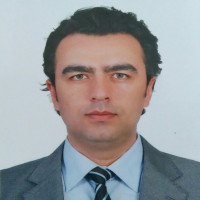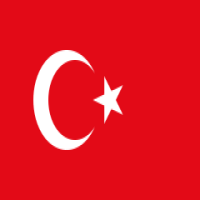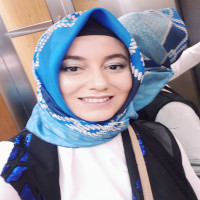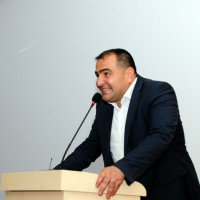Original Research Articles
Issue Reviewers


 0000-0002-3628-8769
0000-0002-3628-8769

 0000-0001-8355-5367
0000-0001-8355-5367

 0000-0001-9217-6684
0000-0001-9217-6684



 0000-0002-8004-3427
0000-0002-8004-3427




 0000-0002-9420-3647
0000-0002-9420-3647





 0000-0003-2589-2482
0000-0003-2589-2482

 0000-0002-9846-5513
0000-0002-9846-5513



 0000-0003-3332-3642
0000-0003-3332-3642






 0000-0002-6674-602X
0000-0002-6674-602X


 0000-0003-4688-1811
0000-0003-4688-1811


 0000-0002-8678-3813
0000-0002-8678-3813
 0000-0002-6350-8122
0000-0002-6350-8122




Aim & Scope
Selçuk University Journal of Social Sciences Vocational School aims to contribute to science through the publication of high-quality and scientifically significant research articles. It focuses on the fields of Business Administration, Economics, International Trade and Finance, Communication, and Finance and Banking. The journal is published in both Turkish and English, and it is released twice a year (April - November).
Selçuk University Journal of Social Sciences Vocational School is an independent, double-blind peer-reviewed, open-access, and online journal. Articles should present original data that have not been previously published or submitted elsewhere. Submitted papers that comply with the journal's submission guidelines and fall within its scope are sent for scientific evaluation to at least two expert referees in the respective field. The Editorial Board members discuss the suitability of the submissions and consider the comments of the reviewers. The final decision is made by the Editorial Board.
Author Guidelines
Language: Turkish, English
Article Types: Research and review articles and research articles derived from graduate theses are published in the Journal of Vocational School of Social Sciences.
Research articles: are original scientific articles based on scientific studies, observations and experiments. The article consists of title, abstract and keywords, introduction, material and method, findings, discussion and references.
Research articles derived from postgraduate theses: are original scientific articles created from master's or doctoral theses.
Article Format: Word
Image Format: Jpeg
Citation Style: APA 7 Citation System
Author Change: Only processed before the manuscript is accepted. Authors should carefully review the list and order of authors before submitting their manuscript and provide the final author list at the time of original submission.
Source Citation Style
Articles should be prepared according to APA 7 Citation System (https://apastyle.apa.org/). In the discipline, APA 7 footnote or in-text system, whichever is widely used, may be preferred.
SPELLING RULES
Title
There should be two titles, one in Turkish and one in English. Titles should express the subject in the best way and the English title should be the exact equivalent of the Turkish title. The first letters of the Turkish title should be capitalised, bold, horizontal, Times New Roman and 18 pt. The English title should be below the Turkish title, capitalised, horizontal, Times New Roman and 12 pt.
Name(s) of Author(s)
The names of the authors should be in Times New Roman, italicised and centred in 10 font size under the English title. The academic title, institution, e-mail address(es) of the authors should be indicated as *, **, etc. as footnotes and without abbreviation.
Abstract
After the names of the authors, three lines of space should be left, the title ABSTRACT should be written in the centre, bold and capital letters, and there should be a Turkish and English abstract consisting of at least 100 and at most 300 words, which expresses the subject briefly and concisely without making a carriage return on the line below it. Maximum 5 keywords should be given under both abstracts. Keywords should be capitalised, centred and italicised. Turkish and English abstracts should be written in Times New Roman 10 font size, italicised and justified. Similar procedures are reversed for articles written in English.
The abstract of the study must include the following information;
Purpose of the Study: The main objectives and research questions of the study
Methods: Research method used, data collection tools, participants, etc.
Findings: Key findings, statistical data and trends
Conclusions: Analysing the findings and what they mean, supporting or refuting hypotheses
Importance and Contribution: The contribution of the research to the discipline and why it is important
Article Text
It should be written in MS Word programme, Times New Roman 11 font size, 14 pt. line spacing. Manuscripts should not exceed 10,000 words on average. Manuscripts should be written in PC compatible Microsoft or any other word processing programme suitable for creating documents with ‘doc’ extension. If a special typeface is used for old-letter texts, these characters should be sent with the document. The parts that need to be emphasised in the text and quotations should be given in italics and quotation marks; quotations of less than five lines should be written between the lines, and quotations longer than five lines should be written 1 cm on either side of the line, in blocks, with 14 pt. line spacing and 11 pt. font size. In terms of spelling and punctuation, the Turkish Language Association's Spelling Guide should be taken as a basis, except for special cases required by the article or the subject.
Page Layout
Manuscripts should be written in Microsoft Word programme and the page layout should be as indicated below:
Paper Size : A4 Vertical
Top Edge Gap : 2,50 cm
Bottom Edge Gap :2,00 cm
Right Margin Space :2,00 cm
Left Margin Space :2,00 cm
Font :Times New Roman
Font Style :Normal
Text Font Size :11 point
Footnote Font Size :8 point
Summary :10 point italic
Paragraph Spacing :6 nk
Line Spacing :Single
Paragraphs should start 1 cm (4 characters) inside.
Article Headings
In the article, main, intermediate and subheadings can be used by numbering according to the processing of the subject. The first letter of each word in these headings should be capitalised.
Photographs, plans, maps and drawings
The ‘.jpg / .tiff’ extension records of the materials such as photographs, plans, maps, etc. used in the text should be attached to the documents to be submitted. It should be ensured that such documents have a resolution suitable for the printing technique (at least 300 pixels) and a size that does not exceed the page area, and if there is more than one, they should be numbered and titled (Picture 1; Map 1; Table, Figure 1, etc.). Pictures, maps or other attachments referred to in brackets for the text should be added at the end of the article.
Source Notation Rules
References should be given in the text with the surname and date of the author and should be written alphabetically at the end of the article and chronologically for the same author. APA 7 version should be used. If the source is given at the beginning of a sentence or in the text, the surname of the author should be given as İnalcık (1982), and if it is given at the end of the sentence, it should be given as (İnalcık, 1982). If the number of authors in the sources is two, it should be stated as Semiz and Akdağ (2011:15), if the number of authors is more than two, it should be stated as Semiz et al. (2011:20) according to the surname of the first author. References by the same author and published in the same year should be indicated as Semiz (1995a), Semiz (1995b), and the full bibliography of the references should be added at the end of the article.
ARTICLE
Single Authored Article in Periodicals
Mould
Author's surname, Author's First Initial. (Year). Title of the article. Name of the Periodical, Volume (number of the periodical), Page range. http://doi.org/xx.xxxxxxxxxx
Example:
Kizilirmak, B. (2023). Examination of cargo services on a third party platform in terms of customer satisfaction. Journal of Selçuk University Social Sciences Vocational School 26(1), 35-47. http://doi.org/10.29249/selcuksbmyd.1139761
Caution: Some articles may not have a DOI number.
In-text use:
..... (Kizilirmak, 2023: XX).
Kizilirmak (2023: XX)......
Articles with Two Authors in Periodicals
Pattern (for Turkish articles):
First author's surname, First initial. and Second author's surname, First initial. (Year). Title of the article. Name of the Periodical, Volume (number of the periodical), Page range. http://doi.org/xx.xxxxxxxxxx
Note 1: The patterns have been prepared in accordance with Turkish. Commas and & signs are used instead of and in foreign language spellings.
Note 2: When a source with two authors in a foreign-language periodical is written in a Turkish work, the commas and & signs between the author names in the foreign-language spelling are removed and replaced with and.
Example (for Turkish articles):
Konya, S. and Kabaklarlı, E. (2023). The effects of migration on economic growth: a panel data analysis on selected countries. Journal of Selçuk University Social Sciences Vocational School, 26(1), 20-34. http://doi.org/10.29249/selcuksbmyd.1033668
Example (for Note 1):
Agboola, S., & Joel, M. B. (2017). Classification of some seasonal diseases: a hierarchical clustering approach. Biomedical Statistics and Informatics, 2(5): 122-127. http://doi.org/10.11648/j.bsi.20170205.11
Example (for Note 2):
Agboola, S., and Joel, M. B. (2017). Classification of some seasonal diseases: a hierarchical clustering approach. Biomedical Statistics and Informatics, 2(5): 122-127. http://doi.org/10.11648/j.bsi.20170205.11
Caution: Some articles may not have a DOI number.
In-text use:
..... (Konya and Kabaklarlı, 2023: XX).
Konya and Kabaklarlı (2023: XX)......
.... (Agboola & Joel, 2017: XX)
Agboola and Joel (2017: XX)......
Articles with more than two authors in periodicals
Pattern:
First author's surname, First initial, Second author's surname, First initial, and Third author's surname, First initial (Year). Title of the article. Name of the Periodical, Volume (number of the periodical), Page range. http://doi.org/xx.xxxxxxxxxx
Note 1: The patterns have been prepared in accordance with Turkish. Commas and & signs are used instead of and in foreign language spellings.
Note 2: When a source with two authors in a foreign-language periodical is written in a Turkish work, the commas and & signs between the author names in the foreign-language spelling are removed and replaced with and.
Example (for Turkish articles):
Dalboy, Z., Abul, A., & Bedük, A. (2023). Analysing the entrepreneurial tendencies of Generation Y in terms of personality traits: A research on Selcuk University FEAS business administration students. Journal of Selçuk University Social Sciences Vocational School, 26 (1), 210-227. http://doi.org/10.29249/selcuksbmyd.1137934
Example (for Note 1):
Maner, J. K., Gailliot, M. T., Rouby, D. A., & Miller, S. L. (2007). Can't take my eyes off you: Attentional adhesion to mates and rivals. Journal of Personality and Social Psychology, 93(3), 389-401. http://doi.org:/10.1037/0022-3514.93.3.389
Example (for Note 2):
Maner, J. K., Gailliot, M. T., Rouby, D. A., & Miller, S. L. (2007). Can't take my eyes off you: Attentional adhesion to mates and rivals. Journal of Personality and Social Psychology, 93(3), 389-401. http://doi.org:/10.1037/0022-3514.93.3.389
In-text usage:
..... (Dalboy et al., 2023: XX). or ........(Dalboy et al., 2023: XX)
Dalboy et al. (2023: XX)....... or Dalboy et al. (2023: XX).....
..... (Maner et al., 2007: XX)
Maner et al. (2007)....
....(Maner et al., 2007: XX)
Maner et al. (2007: XX).
BOOK
Single Author Book
Mould
Author's surname, Author's initials (Year). Title of the book (number of editions). Publisher.
Note: The spelling of a single-author book written in a foreign language in a Turkish work is the same as in the foreign language.
Example:
Kalaycı, Ş. (2016). SPSS Applied multivariate statistical techniques (7th Edition), Asil Yayın.
In-text usage:
....... (Kalaycı, 2016: XX).
Kalaycı (2016: XX).....
Book with Two Authors
Pattern:
Author's surname, Author's initials. and Author's surname, Author's initials. (Year). Title of the book (number of editions). Publisher.
Note: The writing of a book with two authors published in a foreign language in a Turkish work is carried out by removing the commas and & signs between the names of the authors in the foreign language and replacing them with and.
Example:
Yazıcıoğlu, Y. and Erdoğan, S. (2014). SPSS applied scientific research methods (4th edition). Detay Publishing
In-text use:
....... (Yazıcıoğlu and Erdoğan, 2014: XX).
Yazıcıoğlu and Erdoğan (2014: XX).....
Edited Book Chapter
Mould
Author's surname, Author's initials. (Year). Title of the book chapter. Editor's initials. Surname of the editor (Ed.), Title of the book (Number of editions, Page range) in. Publisher.
Note: The writing of a chapter in an English edited book in a Turkish work is carried out by removing the commas and & signs between the author names in English writing and replacing them with and. In addition, if there is more than one editor, the abbreviation Eds. In English, the abbreviation Eds. is written, while in Turkish it is written as Ed. If there is only one editor, there is no difference between Turkish and English notation.
Example (with multiple authors):
Alagöz, A., Parlakkaya, R., Gümrah, A. and Allahverdi, M. (2021). Evaluation of the impact of COVID-19 Process on the financial statements of enterprises in the electricity, gas and water sector. In N. Akdoğan, D. Umut Doğan, & N. Çetinkaya (Eds.), Evaluation of research results on the impact of the COVID-19 pandemic on the financial statements of enterprises (1st ed., 748-788). Gazi Kitabevi.
In-text use:
..... (Alagöz et al., 2021: XX). or ........(Alagöz et al., 2021: XX)
Alagoz et al (2021: XX)....... or Alagoz et al (2021: XX).....
Translation Book
Mould
Surname of the author of the original book, initials. (Year). Title of the book (number of editions). (Translator's initials. Translator's surname, Çev.). Publisher. (Date of publication of the original work).
Note: The writing of an English translation of a book in a Turkish work is carried out by removing the commas and & signs between the author names in the English spelling and replacing them with and. Also, for the abbreviation of the translator, Trans. In English, it is written as Trans., while in Turkish it is written as Çev.
Example:
Solso, R. L., Maclin, M. K., & Maclin, O. H. (2009). Cognitive psychology (2nd ed.). (A. Ayçiçeği-Dinn, Trans.). Kitabevi (Originally published in 2004, 7th edition).
In-text usage:
.... (Solso et al., 2009).
Solso et al. (2009) .....
Official Publications
Mould
Name of the organisation publishing the official publication (Year). Name of the report (Publication no.). Internet address.
Example:
Turkish Statistical Institute. (2022). Labour force statistics micro data set (Publication no. 4692). https://biruni.tuik.gov.tr/yayin/views/visitorPages/index.zul
In-text use:
.... (Turkish Statistical Institute, 2022).
Turkish Statistical Institute (2022) .....
Websites
Mould
Author's Surname, Initial or Group name. (Year). Title of the study. Name of the website. Retrieved from URL at .....
Example:
Revenue Administration (2022). General budget revenues collection. Retrieved from https://www.gib.gov.tr/sites/default/files/fileadmin/user_upload/VI/GBG1.htm on 2 February 2023.
In-text usage:
..... (Revenue Administration, 2022)
Postgraduate Theses
Mould
Author's surname, Author's initials (year). Title of the thesis [Unpublished master's thesis / Unpublished doctoral thesis]. Name of the university.
Author's surname, Author's initials. (Year). Title of the thesis [Master's thesis / Doctoral thesis, Name of the university]. Published database/Internet address.
Examples:
Allahverdi, M. (2006). Electronic human resources management and a research on its applications in Turkey [Unpublished master's thesis], Selçuk University.
Appiah, H. L. (2013). Tax reforms & revenue mobilisation: a case study of the mining sector of Ghana [Unpublished doctoral dissertation], University of Ghana.
Van Brunt, D. (1997). Networked consumer health information systems [Doctoral dissertation, University of California]. ProQuest Dissertations and Theses.
In-text use:
.... (Allahverdi, 2006: XXX).
Allahverdi (2006: XXX).....
Congress Proceedings
Mould:
Author's surname, Author's initials (Year, Month Day). Name of the oral presentation [Oral Presentation]. Name of the Scientific Meeting, City, Country where the meeting took place.
Examples:
Allahverdi, M. and Karaer, M. (2017, May 3-7). The place of e-transformation in accounting education and a proposal for e-transformation education [Oral Presentation]. 36th Turkey Accounting Education Symposium, Antalya, Turkey.
Allahverdi, M., Alagöz, A. & Ortakarpuz, M. (2017, September 18-20). The effect of e-taxation system on tax revenues andcosts in Turkey [Conference presentation]. International Conference on Accounting Studies (ICAS) 2017, Putrajaya, Malaysia
In-text use:
.... (Allahverdi and Karaer, 2017: XX).
Allahverdi and Karaer (2017: XX)......
....(Allahverdi, et al., 2017: XX)
Allahverdi et al (2017: XX)....
NOTE: Detailed information about other types of sources can be found on the APA 7 official website
Ethical Principles and Publication Policy
Publication Ethics Principles
Journal of Selçuk University Social Sciences Vocational School adheres to national and international standards on research and publication ethics. It complies with the Press Law, the Law on Intellectual and Artistic Works and the Directive on Scientific Research and Publication Ethics of Higher Education Institutions. Journal of Selçuk University Social Sciences Vocational School has adopted the International Ethical Publishing Principles published by the Committee on Publication Ethics (COPE), Directory of Open Access Journals (DOAJ) and Open Access Scholarly Publishers Association (OASPA).
• Press Law (National Legislation)
• Law on Intellectual and Artistic Works (National Legislation)
• Higher Education Institutions Scientific Research and Publication Ethics Directive (National Legislation)
• Transparency and Best Practice Principles in Academic Publishing (International Criteria)
Ethics Committee Permission
For research in all disciplines that require ethics committee approval, an ethics committee decision must be obtained and information regarding the decision must be stated in the manuscript text. Our journal does not evaluate studies that do not have an ethics committee decision.
In studies requiring ethics committee approval, information about the permission (name of the committee, date and number) should be included in the text of the article. In case reports, information on the signature of the informed consent form should be included in the article.
In line with the decisions taken by Ulakbim TR Index, Ethics Committee Permission is required for studies to be published since 2020.
Research Requiring Ethics Committee Approval
All kinds of research conducted with qualitative or quantitative approaches that require data collection from participants using survey, interview, focus group, observation, experiment, interview techniques,
Use of humans and animals (including materials/data) for experimental or other scientific purposes,
Clinical trials in humans,
Research on animals,
Retrospective studies in accordance with the law on the protection of personal data.
Also;
Indication of compliance with copyright regulations for the intellectual and artistic works used
Obtaining and indicating permission from the owners for the use of scales, questionnaires, photographs belonging to others,
In case presentations, it should be stated that the “Informed Consent Form” has been obtained.
Protection of Human, Animal and Environmental Rights
• All research on humans should be conducted according to the principles of the Declaration of Helsinki (World Medical Association (WMA) Helsinki Declaration for Medical Research in Human Subjects).
• Informed consent must be obtained for clinical research on humans or samples obtained from humans and must be stated on the first page of the article. For research with human volunteers, a written informed consent form prepared in accordance with the research protocol must be obtained. The consent of the legal guardian of children and those under guardianship or those with confirmed mental illness must be obtained.
• Confidentiality of information provided by research participants and confidentiality of respondents must be ensured. The research must be designed to protect the autonomy and dignity of participants. The research must be planned in a way that does not put participants at risk.
• All experiments involving animals must comply with ARRIVE and ICLAS guidelines and be approved by the ethics committee.
• Authors must provide information on the ethical treatment of animals as well as measures taken to prevent pain and suffering.
• Studies involving plants must comply with the IUCN Policy Statement on Research Involving Endangered Species and the Convention on Trade in Endangered Species of Wild Fauna and Flora.
• Experimental research and field work on plants and the collection of plant material must comply with relevant institutional, national and international norms and legislation.
• A statement indicating the permissions and/or licenses required for the extraction of plant or seed samples should be included in the manuscript.
Protection of Personal Data
All personal data sent to our journal are protected under the Personal Data Protection Law. The data belonging to the Author, Referee and other real persons are not shared with third parties and institutions.
Republishing and submitting the same work to more than one journal
The submission of identical or substantially similar articles by authors to more than one journal is considered an ethical violation by our journal. When this situation is detected by our journal, the article will be returned to the author and the author's articles will be embargoed for a period to be determined by the editor.
Plagiarism Action Plan and Journal's Measures
Our journal scans all submitted articles for plagiarism. The plagiarism status of the papers submitted to the journal is examined using Turnitin software. The similarity rate is expected to be less than 15%. Manuscripts exceeding this rate are rejected without being included in the refereeing process. If necessary, the editors may subject the article to plagiarism check at various stages of the evaluation process.
The journal attaches great importance to intellectual property rights and aims to support and protect the original work of authors. Plagiarism is considered an act contrary to research ethics and innovation standards. Therefore, all authors submitting manuscripts to the journal are expected to fully comply with the code of ethics and refrain from any act of plagiarism.
When plagiarism is suspected in an article, it is first reviewed by the editors of our journal. As a result of the review, our journal contacts the author and requests an explanation within two weeks. If no response is received within the specified period, the journal contacts the university to which the author is affiliated and requests an official investigation.
In cases where plagiarism is detected, our journal follows the following steps:
Notify the university to which the author is affiliated and cooperate to initiate official action.
The PDF copy of the relevant article is removed from the journal's website and links to the article are deactivated. In addition, the phrase “Plagiarized Article” is added to the article title.
The account of the author responsible for the violation will be closed and the author will be prevented from making any submissions to the journal for 3 years.
Correction, Retraction, Expression of Concern
Editors may issue a correction if minor errors are identified in published articles that do not change the findings, interpretations and conclusions. Editors may consider retracting the manuscript if errors/omissions are found that are major enough to change the findings and conclusions. Editors should consider issuing a statement of concern if there is evidence of research or publication misconduct by the authors; if there is evidence that the findings are unreliable and that the authors' institutions have not investigated the incident; or if the potential investigation seems unfair or inconclusive. Correction, retraction or expression of concern will follow COPE guidelines.
Conflicts of Interest
1. Authors must declare any (institutional, financial, personal and academic) conflict of interest at the time of submission.
2. Referees should inform the journal editor and withdraw from the manuscript process in case of any (institutional, financial, personal and academic) conflict of interest that prevents them from evaluating the manuscript.
3. In order to prevent conflicts of interest in the article evaluation process, our journal pays attention to the fact that referees and authors do not work in the same institution.
4. In order to prevent conflicts of interest in the evaluation process of the articles sent to our journal by our board members (Editor, Editorial board member, etc.), the roles of the authors in our journal are suspended until the process of the relevant article is completed and they are not allowed to see the process.
5. The editors of our journal do not take part in decisions regarding articles written by themselves or their family members.
Ethical Violation Notifications
Readers can send an e-mail to sbmyod@selcuk.edu.tr if they notice any errors, inaccuracies, plagiarism, misconduct or duplicate articles in the published articles.
The editors of our journal carefully review the notifications made and take the necessary actions within the scope of COPE principles. Click here to access the relevant COPE guidelines.
Complaints and Appeals to our Journal
You can send your complaints and objections about the content, procedures or policies under the responsibility of our journal or the board members of our journal boards by e-mail to sbmyod@selcuk.edu.tr.
Complaints and objections submitted to our journal are carefully reviewed and evaluated within the scope of COPE principles. Click here to access the relevant COPE principle.
Other Actions Contrary to Scientific Research and Publication Ethics
Higher Education Institutions Scientific Research and Publication Ethics Directive (Click here to access the Directive)
Article 4 - (1) Acts against scientific research and publication ethics are as follows
a) Plagiarism: Presenting the original ideas, methods, data or works of others as one's own work in whole or in part without citation in accordance with scientific rules,
b) Forgery: Using non-existent or falsified data in scientific research,
c) Distortion: Falsifying research records or data obtained, falsifying devices or materials not used in the research, falsifying or shaping the results of the research in line with the interests of the persons and organizations receiving support,
ç) Republishing: Presenting duplicate publications as separate publications for academic appointments and promotions,
d) Slicing: Dividing the results of a research into parts in a way that disrupts the integrity of the research and inappropriately and publishing them in more than one number and presenting these publications as separate publications in academic appointments and promotions,
e) Unfair authorship: Including or excluding people who have not made active contributions, changing the order of authors in an unjustified and inappropriate manner, removing the names of those who have made active contributions from the work in subsequent editions, using one's influence to have one's name included among the authors even though one has not made active contributions,
(2) Other types of ethical violations are as follows
a) Failing to specify the persons, institutions or organizations providing support and their contributions in the publications made as a result of the researches conducted with support,
b) Using theses or studies that have not yet been submitted or defended and accepted as a source without the permission of the owner,
c) Failure to comply with ethical rules in research on humans and animals, and failure to respect patient rights in publications,
ç) Violating the provisions of the relevant legislation in human biomedical research and other clinical research,
d) Sharing the information contained in a work that he/she has been assigned to examine with others before publication without the express permission of the author,
e) To misuse the resources, spaces, facilities and devices provided or allocated for scientific research,
f) Making baseless, unwarranted and intentional allegations of ethical violations,
g) Publishing data obtained in surveys and attitude surveys conducted within the scope of a scientific study without obtaining the explicit consent of the participants or, if the research is to be conducted in an institution, without obtaining the permission of the institution,
h) To harm animal health and ecological balance in research and experiments,
ı) Failure to obtain the necessary permissions in writing from the authorized units in research and experiments before starting the studies.
i) Conducting research and experiments contrary to the provisions of the legislation or international conventions to which Turkey is a party regarding the relevant research and experiments.
j) Failure by researchers and authorities to comply with the obligation to inform and warn those concerned about possible harmful practices related to the scientific research conducted,
k) Not using the data and information obtained from other persons and institutions in scientific studies to the extent and in the manner permitted, not respecting the confidentiality of this information and not ensuring its protection,
l) Making false or misleading statements regarding scientific research and publications in academic appointments and promotions,
Responsibilities of Stakeholders
1-Publisher's Responsibilities
Integrity and Impartiality
• Articles submitted for publication should be evaluated according to academic and scholarly criteria. To ensure that the article evaluation process is carried out regardless of the differences of the authors (gender, religion, race, political opinion, etc.).
Confidentiality
• To ensure that all personal data sent to the journal are protected and not shared with third parties and institutions.
Editorial Structure
• Appointment of editors and editorial board members and ensuring that their information is shared transparently on the website.
Independence of Editors
• All decisions made by the editors working in the journal are independent from the publisher. The relationship between editors and publishers is based on the principle of editorial independence.
Ensuring Ethical Principles
• Ensuring that peer review processes are transparent and fair.
• Taking necessary measures to prevent conflict of interest and ethical violations.
Management of Publication Processes
• Supervising article evaluation and refereeing processes.
• To ensure that the published issues are prepared correctly in terms of format and content.
Responsibilities Regarding Published Articles
• To protect the copyright and other rights of published articles on behalf of the journal and authors, to keep a record of each unpublished article.
2-Responsibilities of Editors
Managing the Publication Process
• To check whether the submitted articles are suitable for the purpose and scope of the journal.
• Ensuring that articles are directed to appropriate referees and supervising the refereeing process.
Referee Evaluation Process
• Ensuring that peer review processes are carried out in a transparent, fair and objective manner.
• Preventing conflicts of interest and controlling ethical violations.
Protection of Ethical Principles
• Identifying and resolving ethical issues.
• Reviewing papers or using software to prevent ethical violations such as plagiarism and scientific fraud.
Ensuring Scientific Quality
• Working to improve the scientific quality of the content published by the journal.
• Ensuring that language and grammar corrections are made in articles.
Editorial Team Management
• Organizing team members working in journal boards.
• Planning the division of labor and distribution of tasks in editorial processes.
Communication and Transparency
• Communicate effectively with authors, reviewers and editorial board members.
• Ensure that policies regarding the refereeing process and other editorial processes are clearly stated on the website.
NOTE: Editors observe the principles of impartiality, transparency and scientific ethics while fulfilling these duties.
3-Responsibilities of Authors
Presenting Original Research
• Ensure that the research presented in the article is original and makes a scientific contribution.
• To work ethically, avoiding plagiarism, data manipulation or falsification.
Compliance with Ethical Rules
• To comply with ethical principles while conducting and presenting the research.
• Obtain the necessary ethics committee approval for studies involving human or animal subjects and include this information in the manuscript.
• Declare that there are no conflicts of interest and clearly state the sources of funding, if any.
Accurate and Transparent Data Presentation
• Report research findings in a complete, accurate and transparent manner.
• Provide detailed information to ensure reproducibility of the methods, analyses and results used.
Compliance with Writing Rules
• To prepare articles in accordance with the journal's writing rules and technical requirements.
• Providing content appropriate to the scope and subject area targeted by the journal.
Following the Article Process
• To make revisions if necessary, taking into account the suggestions of reviewers and editors.
• To make the necessary arrangements on time by complying with the deadline specified in the evaluation process.
Determining the Correct Author List
• Limiting the list of authors to those who actually contributed to the study.
• Determining the author ranking in accordance with their contribution rates.
• Correctly identify the corresponding author and keep their contact information up to date.
Declaring Conflict of Interest
• Clearly indicate any potential conflicts of interest in the research or publication process.
• If the article has been financially supported, declare this.
Referencing Published Work
• Providing accurate references for all information and findings used in the study.
• Referring to previous studies with relevant and accurate citations in the bibliography section.
Avoiding Repeated Publication
• Not submitting the same article to more than one journal.
• Not copying and re-presenting a previously published work.
Cooperation in case of subsequent correction
• If a significant error or omission is noticed in the study after publication, to notify the editor immediately and to publish a correction if necessary.
4-Responsibilities of Referees
Scientific Evaluation
• To evaluate the scientific value, originality and contribution of the articles in the field.
• To examine in detail the purpose, methods, results and discussion of the study.
• To check the accuracy and reliability of the hypotheses, findings and conclusions in the article.
Ethical Control
• To detect ethical violations such as plagiarism, data manipulation, conflicts of interest in articles.
• To evaluate whether the research is conducted in accordance with ethical rules.
Commitment to the Refereeing Process
• Maintaining confidentiality with submitted articles.
• To evaluate the studies in his/her field in an impartial and objective manner.
• To complete the evaluation within the specified timeframe.
Feedback to Improve Article Quality
• Provide constructive and detailed feedback on the content of the manuscript.
• If necessary, making suggestions to present the study in a more understandable and scientific format.
Being Objective and Impartial
• To avoid personal opinions and prejudices in the evaluation process.
• Declare that there is no conflict of interest or affiliation with the author(s)
Compliance with the Principles of the Refereeing System
• To act in accordance with the refereeing system determined by the journal.
• To adhere to the journal's policy regarding the refereeing process.
JOURNAL PUBLICATION POLICIES
General Principles
• Submitted manuscripts must be appropriate to the purpose and scope of the journal and must comply with the rules on the journal website.
• Manuscripts submitted for publication should not have been previously published, accepted for publication elsewhere or under evaluation.
• Our journal accepts manuscripts in Turkish and English.
• Research and review articles and research articles derived from graduate theses are published in our journal.
• For research in all disciplines that require ethics committee approval, an ethics committee decision must be obtained and information regarding the decision must be stated in the text of the article. Our journal does not evaluate studies that do not have an ethics committee decision.
Article Evaluation Process
• The referee processes of the articles submitted to our journal are carried out within the scope of double blind refereeing.
• Submitted manuscripts are reviewed by the editor for compliance with the journal's editorial principles, academic writing rules and APA 7 Citation System, and are scanned for plagiarism using Turnitin. The similarity rate is expected to be less than 15%. Manuscripts exceeding this rate are rejected without being included in the refereeing process.
• After the Preliminary Review and Plagiarism Scanning, the appropriate studies are reviewed by the field editor and then forwarded to at least two expert referees within the scope of double blind review. If one of the two reviewers responds negatively, the manuscript is sent to a third reviewer. In order for the manuscripts submitted to our journal to be published, at least two referees must make a publishable decision.
• In articles evaluated within the scope of double blind review, the process is carried out in confidentiality. The information of referees and authors is kept confidential.
• In cases where the referees request a correction, the relevant referee evaluations are sent to the author and a correction is requested. The corrected text is first checked by the field editor and then by the referee(s).
• The manuscripts that pass the referee process are reviewed by the Language Editors and, if necessary, the author is asked to make corrections. The corrected text is checked by the language editors.
• The manuscripts that are decided to be published are made ready for publication by typesetting and layout.
• After the typesetting and layout processes are completed, the article is published in the journal.
NOTE: Click here for detailed information about the Article Evaluation Process.
Special Issue Publication Policy
A special issue may be published once a year upon the request of the Editorial Board. Manuscripts submitted for the special issue are first pre-reviewed by the Editorial Board, examined for compliance with the spelling rules and similarity scanning for plagiarism assessment. After these stages are evaluated, they are taken into the peer review process using the double blind model. Articles that have completed the referee process are published after the completion of processes such as language control, typesetting and layout, just like other articles published in our journal. Articles submitted to our journal as a special issue must comply with the ethical principles and policies of our journal.
NOTE: Click here for detailed information about the Special Issue Policy of our journal.
Copyright Policy
The authors own the copyright of their works published in our journal and their works are licensed under Creative Commons Attribution-NonCommercial 4.0 International (CC BY-NC 4.0).
NOTE: Click here for detailed information about the Copyright Policy of our journal.
Open Access Policy
Articles published in our journal are published as open access under the Creative Commons Attribution-NonCommercial 4.0 International (CC BY-NC 4.0) license. The full texts of all published articles can be accessed by anyone via instant open access viewing at https://dergipark.org.tr/en/pub/selcuksbmyd/archive.
NOTE: Click here for detailed information about the Open Access Policy of our journal.
Archive Policy
Articles published in our journal are digitally archived in LOCKSS. The full texts of all published articles can be accessed by anyone via instant open access viewing at https://dergipark.org.tr/en/pub/selcuksbmyd/archive.
NOTE: Click here for detailed information about the Archive Policy of our journal.
Price Policy
Our journal is an open access journal, no fee is charged for the journal. No processing or submission fee is charged for articles submitted to the journal or accepted for publication. Our journal does not accept sponsorship and advertising in accordance with its publication policies. All expenses of our journal are covered by the publisher.
NOTE: Click here for detailed information about the Fee Policy of our journal.
Price Policy
All expenses Journal of Selçuk University Social Sciences Vocational School are covered by Selçuk University Press. The publication of articles in the journal and the execution of article processes are not subject to any fee. No processing fee or submission fee is charged under any name for articles submitted to the journal or accepted for publication. Our journal does not accept sponsorship and advertisement in accordance with its publication policies.
Journal of Selçuk University Social Sciences Vocational School is licensed under a Creative Commons Attribution-NonCommercial 4.0 International License (CC BY NC).

